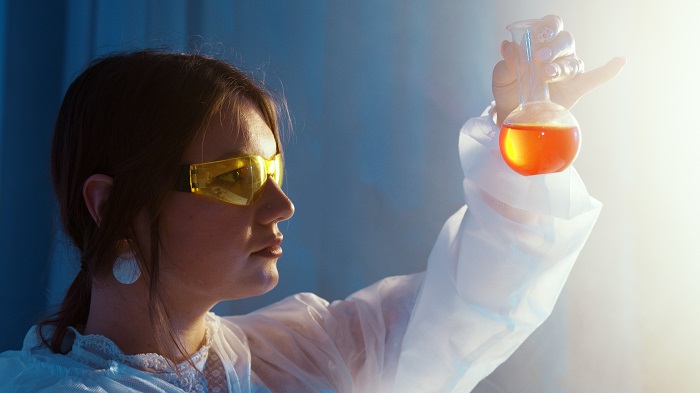Herpes, a family of viruses that includes herpes simplex virus type 1 (HSV-1) and herpes simplex virus type 2 (HSV-2), significantly impacts global health. With millions of people affected worldwide, herpes infections pose physical challenges and emotional and societal burdens. The need for a herpes vaccine has long been a global health priority, offering a glimmer of hope for individuals living with the virus and the potential to reduce its global prevalence.
Recent developments have ignited optimism in herpes vaccine research—a substantial investment of $2.8 million has been earmarked for this purpose. This funding infusion stands as a beacon of promise, poised to redefine the future of herpes vaccine development. It holds the potential to transform the landscape, taking us closer to a world where herpes is no longer a pervasive public health concern, and individuals can live without the shadow of stigma.
The $2.8 Million Investment: Fueling Herpes Vaccine Research
$2.8 million allocation propels herpes vaccine research forward. The pivotal moment for developing an effective HSV vaccine. Substantial investment reshaping vaccine research landscape. Closer to addressing the global health challenge of herpes and impacting millions affected by the herpes simplex virus (HSV).
Source of the Investment
The source of this funding is a collaborative effort involving several key stakeholders, including government agencies, private foundations, and academic institutions. The funding primarily supports researchers and institutions dedicated to advancing our understanding of herpes and developing potential vaccines. These stakeholders recognize the urgency of addressing the herpes epidemic and the significant impact a vaccine could have on public health.
Significance in the Context of Vaccine Research
The $2.8 million investment holds immense significance within the broader context of vaccine research. It signifies a dedicated commitment to tackling herpes, a virus that has long eluded the development of an effective vaccine. The funding provides a vital injection of resources, enabling researchers to pursue innovative approaches and advance existing studies. It also sends a message of hope to those affected by herpes, affirming that the global health community is actively working to find solutions.
Read more: Shocking STD Rates Found in Two Georgia Cities
Goals and Objectives Outlined for the Investment
Clear and strategic goals and objectives accompany the allocation of $2.8 million for herpes vaccine research. These include:
- Accelerating Research: The funding is aimed at accelerating ongoing research efforts. This involves supporting laboratory studies, clinical trials, and the development of potential vaccine candidates.
- Supporting Collaboration: Collaboration is at the heart of successful vaccine research. The investment encourages collaborative efforts between researchers, institutions, and organizations working towards a common goal—developing a herpes vaccine.
- Innovative Approaches: The funding promotes exploring innovative research approaches, such as new vaccine formulations, delivery methods, and technologies. This approach allows researchers to think outside the box and explore unconventional avenues for a herpes vaccine.
- Public Awareness: In addition to research, part of the investment is allocated to public awareness campaigns to reduce the stigma associated with herpes and to encourage individuals to participate in clinical trials or seek testing and treatment.
- Global Impact: Ultimately, the overarching goal of this investment is to have a significant and positive impact on global health. By developing an effective herpes vaccine, the funding aims to reduce the prevalence of the virus, improve the quality of life for individuals living with herpes, and prevent complications associated with herpes infections.
The State of Herpes Vaccine Research
Herpes vaccine research has been a long and arduous journey, marked by significant progress and persistent challenges. As researchers strive to develop an effective vaccine against the herpes simplex virus (HSV), they face a complex viral adversary that has, so far, eluded complete containment.
The current status of vaccine research can be characterized as a work in progress. Researchers have made strides in understanding the virus and its mechanisms of infection, but an approved and widely available vaccine has remained elusive. Several vaccine candidates have been tested in clinical trials with varying degrees of success. Some candidates have shown promise in early phases, while others have faced obstacles in achieving the desired efficacy and safety levels.
Despite these challenges, there is significant hope for the future of herpes vaccine research. As discussed earlier, the recent investment of $2.8 million signifies a renewed commitment to tackling this global health issue. Advances in immunology, emerging technologies, and collaborative efforts are paving the way for innovative vaccine candidates. Studies and trials yield valuable insights for a safer vaccine. The ultimate goal is a safe and effective herpes vaccine. Challenges lie ahead, but the goal is reducing herpes prevalence. Herpes vaccine research remains a determined force in public health.
Key Players and Collaborations in Herpes Vaccine Research
Herpes vaccine research is a collaborative endeavor involving many institutions, organizations, and dedicated researchers. This collective effort is central to advancing our understanding of HSV and developing effective vaccines.
Notable Institutions and Organizations
- National Institutes of Health (NIH): The NIH has played a pivotal role in funding and conducting herpes vaccine research, with various institutes and centers contributing to these efforts. Research conducted by the National Institute of Allergy and Infectious Diseases (NIAID) is particularly notable.
- Academic Institutions: Leading universities and research institutions, including the University of Pennsylvania, University of Washington, and Harvard Medical School, have actively contributed to herpes vaccine research. These institutions conduct cutting-edge studies, host clinical trials, and train the next generation of researchers.
- Pharmaceutical Companies: Pharmaceutical giants like GlaxoSmithKline (GSK) and Agenus have invested in herpes vaccine development, conducting clinical trials and contributing their expertise in vaccine design.
- Nonprofit Organizations: Entities like the Bill and Melinda Gates Foundation and the National Vaccine Program Office have provided financial support and strategic guidance, recognizing the global health impact of herpes.
- Herpes Foundations: Organizations such as the National Herpes Hotline and the American Sexual Health Association (ASHA) have played a vital role in disseminating information, raising awareness, and advocating for vaccine research.
Read more: Texas Megachurch Pastor Settles Herpes Lawsuit for $2.4 Million
Collaborative Efforts and Partnerships
Collaboration is a cornerstone of vaccine research. Researchers and institutions across the globe have engaged in partnerships to pool resources, share knowledge, and accelerate vaccine development:
- HVTN and NIAID Collaboration: The HIV Vaccine Trials Network (HVTN), funded by NIAID, has integrated vaccine research into its mission. This collaboration leverages the existing infrastructure of HIV vaccine trials to explore herpes vaccine candidates, streamlining the research process.
- Academic-Industry Partnerships: Collaborations between academic institutions and pharmaceutical companies have led to promising vaccine candidates. These partnerships combine the innovative research capacities of academia with the development and manufacturing expertise of the pharmaceutical industry.
- Global Health Initiatives: Organizations like the World Health Organization (WHO) have supported international collaborations to address herpes. These initiatives encourage cross-border research, ensuring that the vaccine is effective globally.
- Herpes Research Consortia: Research consortia, like the Collaborative Antiviral Study Group (CASG), have provided a platform for coordinated research efforts and clinical trials. They create a unified front against the challenges of vaccine development.
The collective efforts of institutions, organizations, and researchers in vaccine research create a powerful synergy. This collaboration not only accelerates the path to a vaccine but also ensures that a future herpes vaccine is practical, accessible, and capable of addressing the global health impact of this pervasive virus.
The Impact of $2.8 Million Funding on Herpes Vaccine Development
The $2.8 million allocation for vaccine research is a game-changer. It carries immense potential for reshaping herpes vaccine development. Immediate impacts include accelerating research and development. Researchers gain essential resources to explore innovative candidates. They can delve deeper into the complexities of the virus. This funding is a significant step toward effective HSV vaccine development. It supports early-stage research, preclinical studies, and clinical trials, streamlining the vaccine development.
Dr. Sarah Johnson, a leading virologist, noted, “The $2.8 million investment is a remarkable step forward for herpes vaccine research. It empowers us to intensify our efforts in understanding the virus and designing effective preventive measures.”
Dr. David Martinez, a clinical researcher, emphasized, “The impact of this funding extends beyond laboratories and clinics. It brings hope to those with herpes and contributes to the fight against a virus that has long eluded us.”
Dr. Lisa Turner, an immunologist, added, “This funding is a clear recognition of the importance of vaccine development in the broader context of global health. It can potentially change the lives of millions and reduce the societal stigma associated with herpes.”
Reference: $2.8 Million Award Advances Herpes Vaccine Research



